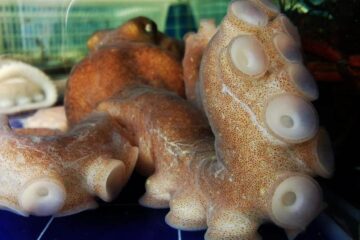High added-value compounds from residues from cider production

Cider making, as with any similar process, involves the production of leftover “waste” such as the apple pulp, discarded apples and liquid residue, for example.
AZTI-Tecnalia Technological Centre, given its intention to improve and innovate the production process of natural cider, is undertaking a number of studies of the management, the reduction and the re-evaluation of waste residue from cider making. The aim is twin-fold: the gains from eliminating the waste generated in this sector and the conversion of this into high added-value products.
Waste management systems measure the amount of waste generated and study its possible reduction or elimination. Then the option most suitable for managing the leftover waste is studied. Despite the fact that a number of other alternatives exist, AZTI- Tecnalia have firmly decided on re-evaluation.
Using these residues for animal foods or fertiliser does not provide great added value, for example. Nevertheless, it has been discovered that these sub-products of cider making, such as the pulp, have high antioxidant levels and, moreover, are claimed to have properties beneficial to health. Besides, polysaccharides such as pectin and dietetic fibre could be new, highly economically viable, ingredients for foodstuffs.
AZTI-Tecnalia is working on a thorough analysis of this family of compounds and on the development of extractive processes, viable from an economic viewpoint, in order to convert the residues into high added-value products.
Media Contact
All latest news from the category: Process Engineering
This special field revolves around processes for modifying material properties (milling, cooling), composition (filtration, distillation) and type (oxidation, hydration).
Valuable information is available on a broad range of technologies including material separation, laser processes, measuring techniques and robot engineering in addition to testing methods and coating and materials analysis processes.
Newest articles

Octopus inspires new suction mechanism for robots
A new robotic suction cup which can grasp rough, curved and heavy stone, has been developed by scientists at the University of Bristol. The team, based at Bristol Robotics Laboratory,…

Peptides on Interstellar Ice
A research team led by Dr Serge Krasnokutski from the Astrophysics Laboratory at the Max Planck Institute for Astronomy at the University of Jena had already demonstrated that simple peptides…

A new look at the consequences of light pollution
GAME 2024 begins its experiments in eight countries. Can artificial light at night harm marine algae and impair their important functions for coastal ecosystems? This year’s project of the training…





















